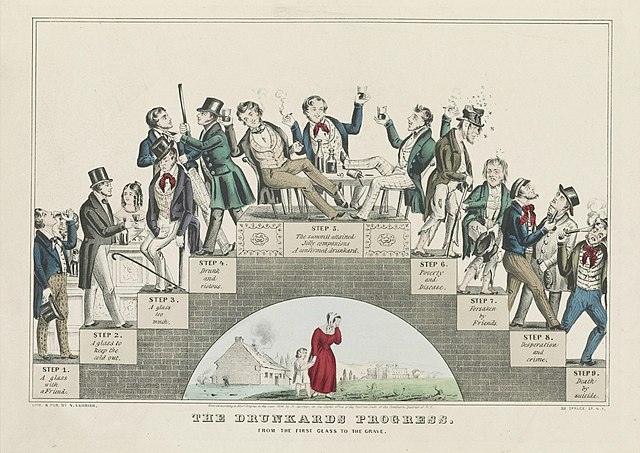The temperance movement is a social movement promoting temperance or complete abstinence from consumption of alcoholic beverages. Participants in the movement typically criticize alcohol intoxication or promote teetotalism, and its leaders emphasize alcohol's negative effects on people's health, personalities and family lives. Typically the movement promotes alcohol education and it also demands the passage of new laws against the sale of alcohol, either regulations on the availability of alcohol, or the complete prohibition of it.
The Drunkard's Progress (1846) by Nathaniel Currier warns that moderate drinking leads to total disaster step-by-step.
Songbook used at the Women's Temperance Organization from Wilkinsburg, Pennsylvania.
Sons of Temperance procession, Hill End, New South Wales, 1872
A temperance fountain in Tompkins Square Park, New York City
Temperance in its modern use is defined as moderation or voluntary self-restraint. It is typically described in terms of what a person voluntarily refrains from doing. This includes restraint from revenge by practicing mercy and forgiveness, restraint from arrogance by practicing humility and modesty, restraint from excesses such as extravagant luxury or splurging, restraint from overindulgence in food and drink, and restraint from rage or craving by practicing calmness and equanimity.
Piero del Pollaiuolo, Temperance (1470)
Figure of Temperance from Digges memorial by Nicholas Stone, St. Mary's Church, Chilham
Representation of temperance (painted wood sculpture, dated 1683, which covers the shrine of the baptismal church Breton Commana in France). Temperance's foot tips over a jug of wine, and presents a pitcher of water







